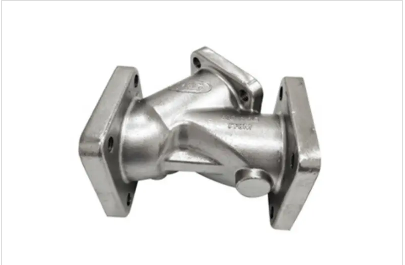Mobile:+86-311-808-126-83
Email:info@ydcastings.com
turbine impeller types
Understanding Turbine Impeller Types
Turbine impellers are critical components in various engineering applications, particularly in the fields of aerospace, automotive, and hydropower. An impeller is the rotating part of a centrifugal pump or compressor, designed to impart energy to the fluid. The performance and efficiency of a turbine largely depend on the design and type of the impeller used. This article explores the different types of turbine impellers and their applications.
1. Radial Impellers
Radial impellers, also known as centrifugal impellers, are the most common type of impeller used in turbines. They operate by converting rotational energy into kinetic energy, pushing fluid outward from the center of the impeller. In radial impellers, the flow of fluid is directed perpendicular to the shaft of the turbine. This design is efficient for generating high pressure and is commonly used in applications requiring fast fluid movement, such as water supply systems and HVAC systems.
Advantages - High efficiency at specific flow rates. - Suitable for high-pressure applications. - Simple design, making manufacturing and maintenance easier.
Disadvantages - Performance drops at varying flow rates. - Not ideal for applications requiring significant flow variations.
2. Axial Impellers
Axial impellers differ from radial types in that they direct the flow of fluid along the axis of the impeller. This type of impeller is mainly used in applications that focus on moving large volumes of fluid at relatively low pressure. Axial impellers are commonly found in aircraft engines, marine propulsion systems, and large-scale cooling towers.
Advantages - Capable of handling high flow rates with low pressure drops. - Efficient in pumps designed for transporting fluids over long distances. - Provides a steady flow, essential for many industrial processes.
Disadvantages - Lower efficiency compared to radial impellers in high-pressure conditions
. - More complex design, which can complicate manufacturing.turbine impeller types

3. Mixed-Flow Impellers
Mixed-flow impellers combine features of both radial and axial designs. They allow fluid to flow both radially and axially, which provides a balanced approach to moving fluids. Mixed-flow impellers are effectively used in applications needing moderate pressure and flow rate, such as irrigation systems and some types of hydroelectric plants.
Advantages - Versatile, suitable for varying operational conditions. - Offers a good compromise between volume and pressure. - Can improve the overall efficiency of the system.
Disadvantages - More complex design compared to purely radial or axial types. - Requires careful tuning to avoid performance inefficiencies.
4. Diagonal Impellers
Diagonal impellers are somewhat of a hybrid between radial and axial impellers. They have blades set at an angle, allowing for a diagonal flow path. This design enhances the performance of turbines in handling both pressure and flow rate effectively. Diagonal impellers are often found in applications that require a consistent flow across varying conditions, such as in chemical processing and wastewater treatment facilities.
Advantages - Can effectively handle variable flow and pressure. - Improved efficiency in some applications compared to purely axial or radial designs.
Disadvantages - More complex design requirements can increase production costs. - Potential issues with cavitation if not carefully designed.
Conclusion
The choice of turbine impeller type is crucial for optimizing performance in various applications. Selecting the appropriate impeller design depends on factors such as required flow rate, pressure conditions, and efficiency needs. Radial, axial, mixed-flow, and diagonal impellers each offer unique advantages and challenges. Understanding these differences allows engineers and designers to make informed decisions, ensuring that the turbine systems they develop are efficient and effective for their intended applications. As technology progresses, innovations in impeller design will continue to enhance energy efficiency and operational performance across various industries.
-
Understanding Metal Casting TechniquesNewsApr.02,2025
-
Understanding Exhaust Manifolds for Enhanced Engine PerformanceNewsApr.02,2025
-
The World of Metal FabricationNewsApr.02,2025
-
Key Components for Pump and Turbo EfficiencyNewsApr.02,2025
-
Essential Tools for Automotive Maintenance and RepairNewsApr.02,2025
-
Durable Valve Components for Effective Water ManagementNewsApr.02,2025











